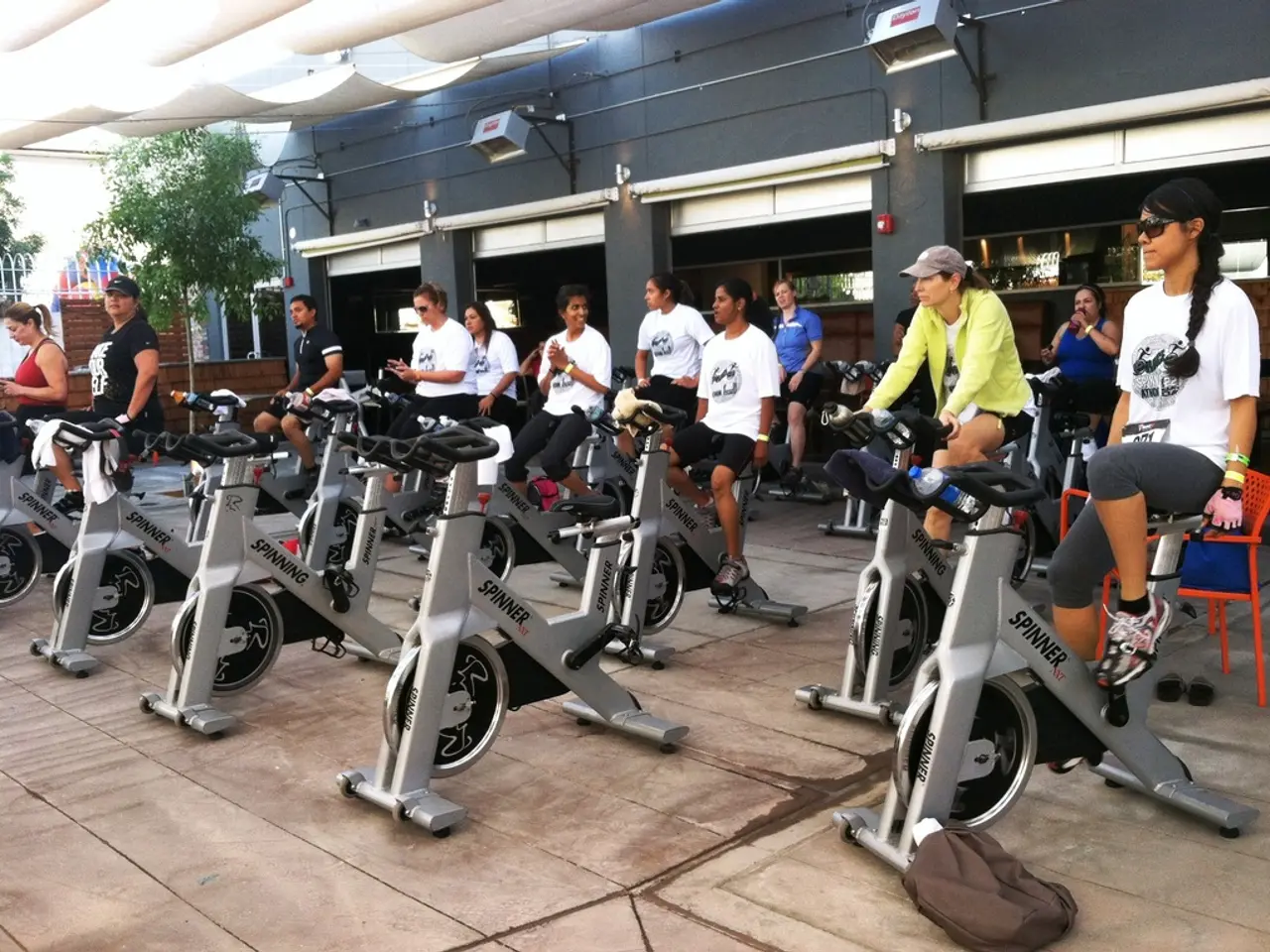Physical Fitness is being promoted across Japan through Radio Taiso exercises
Radio Taiso: A Daily Fitness Ritual Connecting Generations in Japan and Beyond
Every morning, around 100 people gather in Rinshi-no-mori Park in Meguro, Tokyo, to perform Radio Taiso together. The participants, primarily elderly, engage in a communal exercise routine that has deep cultural significance in Japan and extends beyond its borders.
Origins of Radio Taiso
Radio Taiso, a daily group calisthenics exercise program, originated in Japan in the 1920s. Initiated by the Japanese Ministry of Education and the National Physical Education Association, it was designed as a public health intervention to promote physical exercise nationwide. The routine, broadcast originally on the radio, gained widespread popularity as a simple morning routine practiced in schools, workplaces, and neighborhoods throughout Japan.
A Global Phenomenon
The practice of large-group exercise in public spaces, including Radio Taiso, has become popular in Taiwan, Taiwanese cities, China, and South Korea. In South Korea, public parks are designed for seniors to engage in physical activity, and Radio Taiso, which was brought to Korea during the Japanese colonial period, is still practiced there. Mini-outdoor fitness facilities are installed on the outskirts of smaller forests or train stations in South Korea to facilitate this activity.
Health Benefits and Social Connection
Studies and observations show that elderly Japanese individuals who regularly perform Radio Taiso benefit in terms of mobility, balance, cardiovascular health, and psychological well-being. The practice supports healthy aging by encouraging daily movement and providing structured group participation, which can help combat isolation and depression among older adults.
For many participants, the social aspect of meeting with others in the park is just as important as the physical benefits. Tsuyoshi Ueda, a 93-year-old former construction worker, has been attending Radio Taiso in the park for over 30 years, attributing his regular attendance to the social aspect of meeting with others.
A Daily Ritual in Japan
In Japan, Radio Taiso is a national pastime, with at least 27 million people doing it at least twice a week. The program is broadcast through a recorder in various locations across Japan, often through citizen's initiatives. Masaaki Nagata, a 72-year-old retiree from an advertising agency, attends a daily gym session in Rinshi-no-Mori Park in Tokyo as a social event and to alleviate stiffness in his back.
Conclusion
Radio Taiso, a simple and accessible exercise routine, has endured for over a century due to its dual role in improving physical health and fostering social interaction. For elderly Japanese people, Radio Taiso is a vital routine that supports both physical and social well-being, making it a culturally iconic exercise practice.
Read also:
- "Female advocate for women's rights in Morocco apprehended due to allegations of claiming Allah is a lesbian"
- Quick Tips for Rapidly Alleviating Nighttime Nausea
- Administration contemplating potential reclassification of marijuana under Trump's leadership
- Top-notch Spicy Perfumes Elevate Every Attire to a Delicious Level






